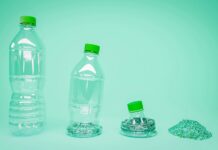A study has recently ignited controversy by indicating that compostable plastic bags happen to release more harmful substances into the environment than traditional plastic bags when they break down.
European Bioplastics, which represents companies involved in the production of different types of biodegradable plastics, has understandably criticised the research, labelling it as scientifically questionable. They have made an argument that the study fails to accurately replicate the actual circumstances under which plastics degrade.
The dispute brings attention to concerns related to biodegradable plastics. For some people, these materials are seen as an answer to the pressing issue of plastic waste around the world. However, there are others who believe that such materials divert focus from the actual solution, which is to reduce overall plastic consumption.
What were the findings of the study?
The study, conducted by scientists in Spain and published in the Journal of Hazardous Materials, consisted of examining the degradation products of different types of plastic bags by making use of zebrafish cells cultivated in a laboratory setting.
The researchers conducted a study comparing compostable bags, a kind of biodegradable plastic bag intended to break down in specific conditions, with conventional plastic bags.
The study discovered that extracts from compostable bags reduced cell viability, and this effect was more pronounced when the bag had been subjected to ultraviolet light or had undergone the process of composting.
However, the cells did not experience the same toxic effect from similar leftovers from conventional plastic bags.
The researchers emphasised the significance of studying the impact of degradation mechanisms, like sunlight and composting, on the harmful effects of bioplastics, according to their publication in the Journal of Hazardous Materials.
What criticisms have been raised regarding the study?
In order to test the zebrafish cells, the scientists used methanol, an alcohol, for removing chemicals from the plastic.
European Bioplastics issued a statement that the study did not provide any evidence to suggest that the methanol did not alter the chemical makeup of the samples. The study may not accurately represent the behaviour of these plastics in real-world scenarios.
European Bioplastics stated that the claims made by the Institute of Environmental Assessment and Water Research, which is one of the organisations involved in the study, lack backing from scientific evidence.
The organisation suggested that the study, which includes the test methods and sample-taking procedures, should be thoroughly reassessed for scientific accuracy.
Dr. Costas Velis, one of the lecturers in resource efficiency systems at Leeds University in the UK, who did not participate in the new study, emphasises the significance of gaining a deeper understanding of the degradation products of biodegradable plastics.
What exactly are biodegradable plastics, and can they be considered a viable solution to the issue of plastic pollution?
A wide range of materials, like plant fibres like cellulose, starch from sources like sugar cane or corn, and agricultural waste, can be used to create biodegradable plastics. These plastics are commonly used for packaging, cutlery, bottles, and plates.
Other substances can be added to starch to provide advantageous characteristics, like the ability to resist the spread of microorganisms.
Biodegradable plastics refer to plastics that can be broken down by living organisms, particularly bacteria. Additionally, some of these plastics are compostable, which means they can be transformed into a nutrient-rich substance.
In contrast, conventional plastics, typically derived from fossil fuels, have the potential to persist in the soil for hundreds of years. This extended lifespan poses a threat to fauna and can result in the physical breakdown of plastics, leaving behind small microplastic particles.
Compostable substances usually undergo decomposition and transform into compost, but this process occurs only under particular circumstances. According to a report by Greenpeace, it is recommended that the majority of items be industrially composted.
According to Professor Phil Purnell, a materials and structures expert at the University of Leeds in the UK, it is essential to note that just because a substance is labelled as compostable, it does not necessarily mean that it will decompose in the same manner as an apple core if it is thrown outside.
As per him, it is necessary to establish both hard infrastructure, such as industrial composting facilities, and soft infrastructure, such as collection systems and local plans, in order to effectively manage and separate these items.
Do biodegradable plastics have the same capabilities as conventional plastics?
Dr. Velis explains that although the plastics sector is experiencing a significant wave of innovation, it is important to acknowledge that not all new products have had exclusively positive effects.
He mentioned that there is a concern regarding the potential complications that could arise in recycling systems when dealing with biodegradable plastic bottles composed of polylactic acid (PLA), such as the ones made from polyethylene terephthalate (PET) that are not biodegradable.
It is quite challenging to differentiate them using only the naked eye, he remarked. Recycling systems have the potential to disrupt and damage the flow of recycling materials.
It is well to be noted that certain environmental groups, such as Greenpeace, have expressed concerns regarding the use of biodegradable plastics. They argue that the focus on biodegradable plastics may divert attention from the primary solution, which is decreasing overall plastic consumption.
According to Dr. Velis, biodegradable plastics have a more limited variety of textures and colours when compared to conventional plastics. He added that there has been no similar progress when it comes to the creation of plant-based or degradable functional materials.



























